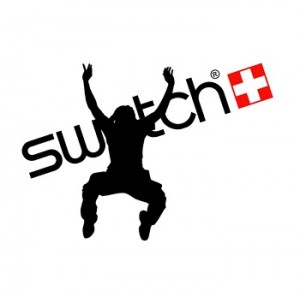The wristwatch maker and tech company has revealed its plans to compete in the wearable technology category.
The bestselling watchmaker in the world, Swatch Group, has now announced its intentions to introduce new models of smartwatch that will allow consumers to be able to display data from smartphones and to even make contactless payments by way of wearable technology.
The CEO of the company, Nick Hayek, has stated that the first versions of this gadget will be available in May.
At the same time, Hayek made it clear that Swatch doesn’t intend to try to replicate the types of smartwatch that have now been launched by many of the major players in the wearable tech categories, such as Motorola, Pebble, and Apple. Those fully featured devices are not the type of product that this company will be producing, at least not for the first wave. As a company that currently sells 18 percent of all wristwatches in the world, it could be possible that Swatch has a good idea as to what consumers really want to be wearing and what they want from those devices.
Swatch is now adding the smartwatch to its massive lineup that has consistently been growing its market share.
 The company makes wristwatches under a range of different brands, including Calvin Klein, Omega, Breguet, Rado, and several others, in addition to its own. It has managed to maintain a consistent growth of its market share over a steady five years and has seen significant sales growth, as well, despite the fact that wristwatches had been somewhat falling out of favor as an accessory.
The company makes wristwatches under a range of different brands, including Calvin Klein, Omega, Breguet, Rado, and several others, in addition to its own. It has managed to maintain a consistent growth of its market share over a steady five years and has seen significant sales growth, as well, despite the fact that wristwatches had been somewhat falling out of favor as an accessory.
Now, the company is stepping into a market that already feels flooded, even before these wearable technology devices have started becoming commonplace. Nick Hayek explained that there will be two types of wireless technology incorporated into the first wearables released by the brand. The first will be NFC technology. This will make it possible for the gadgets to trigger contactless payments, unlock hotel room doors and other compatible locks. The second will be Bluetooth, which will allow data to be sent and received through communication between the smartwatches and smartphones.
The co-founders of Jiff are working to encourage workers at large companies to live healthier lifestyles.
Co-founders of a startup called Jiff have taken the example from PayPal, Facebook, and Tickle, and have developed a way to incorporate that knowledge into wearables that will encourage employees of companies such as Red Bull, Activision Blizzard, and Qualcomm to take on healthier behaviors and better overall lifestyles.
They have now raised just under $26 million in order to create a disruption to benefits programs from employers.
The strategy is to provide employees with meaningful incentives to encourage them to take on healthier behaviors. This will use a range of different methods and tools, including wearables, in order to improve the overall health of employees and to drive down the costs associated with their health insurance packages. Among the incentives that are being offered is to be able to earn credits that can be applied against deductibles if claims need to be made on their health plans.
Wearables in the form of fitness trackers, smartwatches, and other gadgets help to show who is truly participating.
 By using wearable technology, employers don’t need to take a worker’s word for it. They can actually see exactly how much effort an individual employee is putting into the healthy lifestyle strategy so that they can receive their incentive rewards.
By using wearable technology, employers don’t need to take a worker’s word for it. They can actually see exactly how much effort an individual employee is putting into the healthy lifestyle strategy so that they can receive their incentive rewards.
According to the CEO of Jiff, Derek Newell, “Our engagement is usually with the head of benefits. … We work with them to determine what behaviors they want to incent or what challenges they want to design into the system.” The incentives for this program are fully customizable, depending on the current health of a given employee. For instance, a worker who is currently managing diabetes would be offered different types of rewards than someone who hasn’t been diagnosed with any chronic conditions at all.
On the side of employers, this wearables based health tracking program helps to promote cost reductions when it comes to providing their employees with healthcare coverage. Moreover, this type of program has also been shown to boost the overall feeling of community and goodwill within a workplace.
 The company makes wristwatches under a range of different brands, including Calvin Klein, Omega, Breguet, Rado, and several others, in addition to its own. It has managed to maintain a consistent growth of its market share over a steady five years and has seen significant sales growth, as well, despite the fact that wristwatches had been somewhat falling out of favor as an accessory.
The company makes wristwatches under a range of different brands, including Calvin Klein, Omega, Breguet, Rado, and several others, in addition to its own. It has managed to maintain a consistent growth of its market share over a steady five years and has seen significant sales growth, as well, despite the fact that wristwatches had been somewhat falling out of favor as an accessory.
 By
By 